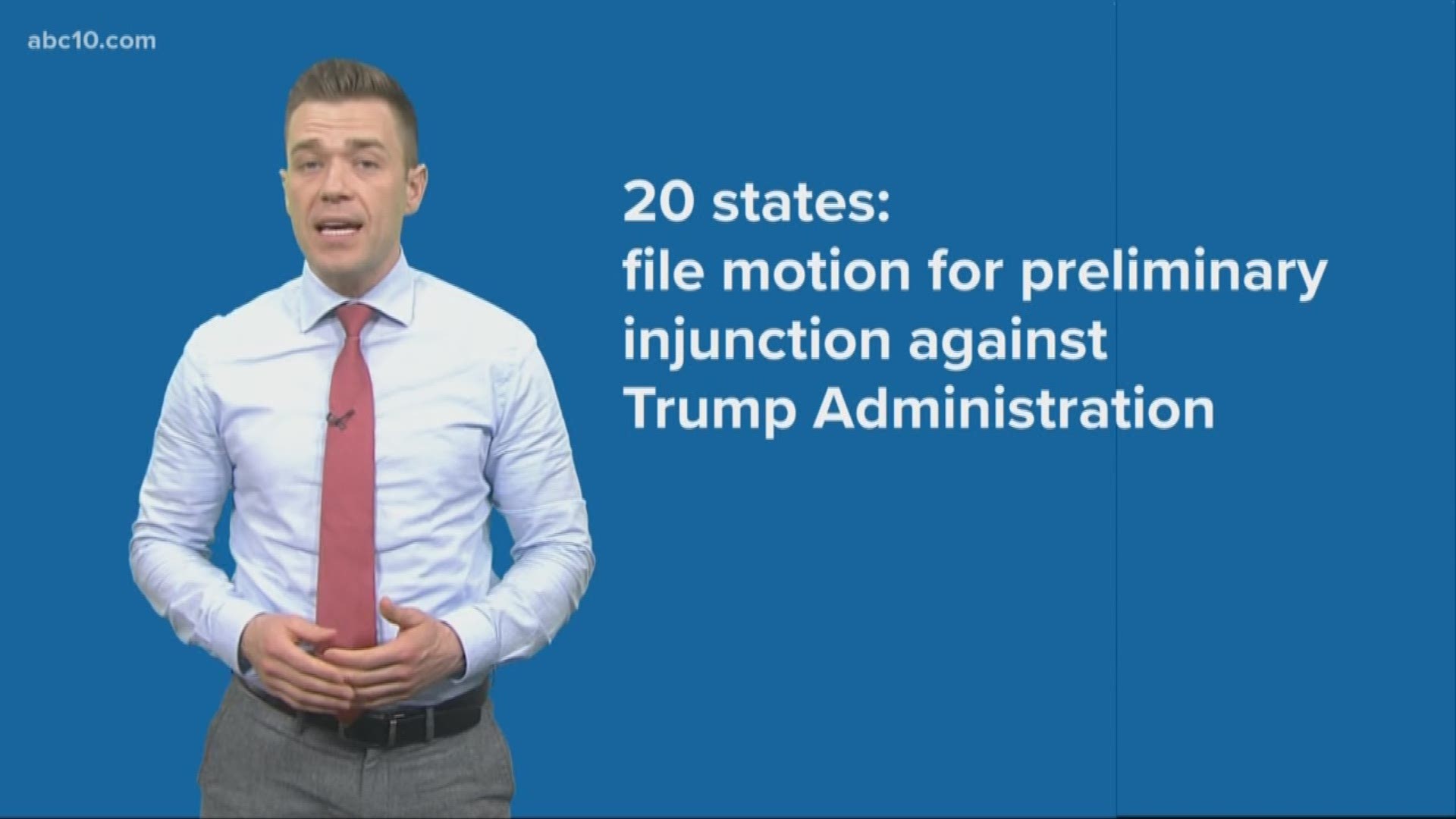To date, the California Attorney General's office has sued the Trump administration 49 times. Two of those lawsuits were filed in the last week.
The first of those two lawsuits, filed Wednesday, April 3, challenged the Trump Administration's reversal of school meal nutrition standards. The second, filed Thursday, April 4, seeks to block President Trump's Two-for-One executive order which requires two regulations to be removed for every new regulation introduced.
CLIMATE: Of the total 49 lawsuits filed, an astounding 24 are climate based. The following are among them:
- Fighting to preserve Waste Prevention Rule (which protects against the release of methane from oil and gas operations on public and tribal lands).
- Challenging the Bureau of Land Management's repeal regulations governing of fracking of oil and gas wells drilled on federal lands and Native American tribal lands.
- Stood up for the Clean Water Rule, which protects California's lakes, rivers and streams from pollutants.
- Sued the Environmental Protection Agency for suspending the Worker Protection Standard, which requires safety training for agricultural workers and families.
IMMIGRATION: Of the 49 lawsuits filed, 12 are related to immigration. The following are among them:
- Protecting the rights of Dreamers granted DACA after the Trump Administration threatened to end the program.
- Fighting the Administration's Two-for-One executive order, which requires agencies to repeal at least two existing regulations for every new regulation on agency issues to offset costs. The state argues that this gives no consideration to the benefit or protections lost by the repeal of said regulations.
- Led 16 states in filing a lawsuit to challenge the Administration's declaration of a national emergency at the southern border and attempt to divert funding.
- Opposing the Administration's attempt to add a question on citizenship, which would "violate the integrity of the 2020 Census," according to the state.
HEALTHCARE: Of the 49 lawsuits filed, six are related to healthcare.
- Standing up access to affordable birth control.
- Led 19 states to intervene in House v. Price, which undercuts affordable health insurance plans under the Affordable Care Act.
- Sued the Administration after it made an abrupt decision to stop making cost-sharing reduction payments required by the Affordable Care Act.
- Fought to protect the Affordable Care Act from a challenge from Texas and other states.
- Sued in opposition to the expansion of Association of Health Plans that offer "junk health insurance coverage" that evades consumer protections.
- Sued to protect Title X Family
EDUCATION: Of the 49 lawsuits filed, four are related to education.
- Defending the "borrow defense rule," which improves loan forgiveness for students defrauded by their schools.
- Defending "gainful employment rule" which requires for-profit schools to prepare students for "gainful employment in a recognized occupation."
- Challenging the Department of Education's failure to process debt-relief claims submitted by students who took federal loans to attend for-profit colleges.
- Challenging the Administration's reversal of school nutrition standards. The state said that the decision ignores existing federal dietary guidelines.
CIVIL RIGHTS: Of the 49 lawsuits filed, one is related to civil rights. The state intervened in Stockman v. Trump to "stand up for transgender servicemembers harmed by Trump's ban.
PREVENTING VIOLENCE: Of the 49 lawsuits filed, one is related to preventing violence. The state blocked the Administration's decision to allow so-called "ghost guns" to become available without restriction.
CONSUMER PROTECTION: Of the 49 lawsuits filed, one is related to consumer protection. The state defended internet freedom when it filed a suit against the Federal Communications Commission, challenging its attempt to repeal net neutrality rules.
HOW MUCH DO THESE LAWSUITS COST?
Many have questioned how much money is being spent on the lawsuits. To that, Becerra said the following: "The amount we're having to spend is a fraction of what we're saving."
The Attorney General went on to say that court victories are already restoring $58 million dollars to law enforcement agencies and a verdict on a census citizenship question could mean billions of dollars to the state over the next 10 years.

